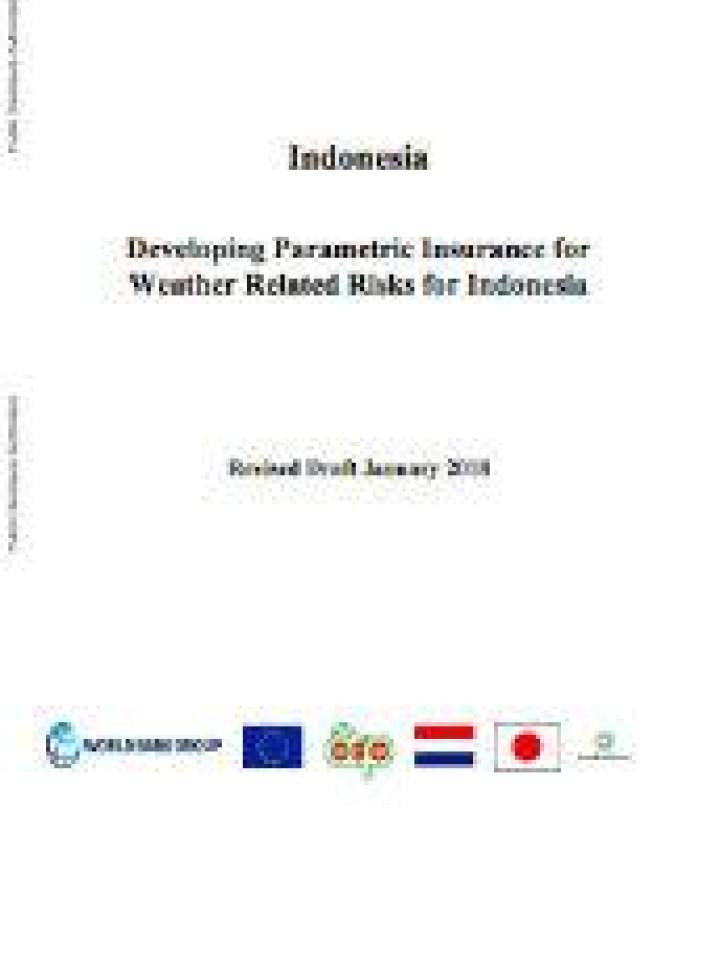Developing parametric insurance for weather related risks for Indonesia
This study investigates the development of a parametric insurance product as an ex ante risk management instrument that relies on regional drought indices and provides province-level payouts to the Government of Indonesia (GoI) in case of severe droughts. As a case study, the province of Central Java has been chosen given its importance in rice production and a recent request of the Central Java Government to transfer drought risk. This study uses over 50 years of historical gridded precipitation and temperature data to develop standard precipitation indices (SPI) and standard precipitation evapotranspiration indices (SPEI) to quantify drought extents at a resolution of 50 x 50 km. Preliminary results of this study have been shown and discussed with the Ministry of Agriculture of Central Java, the National Weather Service of Indonesia (BMKG), the Office of the Insurance Regulator, the Ministry of Finance, and leading Indonesian insurers in the form of workshops undertaken in Indonesia (Semarang and Jakarta) in July 2017. The availability of longer seasonal rice production data will improve the validation of the developed indices.
Indonesia is one of the main agriculture producers globally and largely relies on domestic staples for its growing population. Projections of climate change models for Indonesia point towards increasing temperatures and more extreme distributions of precipitation with more frequent dry and wet periods. The GoI has been focusing on modernizing rice production through improved irrigation infrastructure and early warning systems to better cope with developing droughts and support schemes for rice farmers. While governments use risk transfer solutions mostly for infrastructure, parametric insurance covers have become increasingly available for agriculture assets including crops, livestock, and forestry.
Explore further
